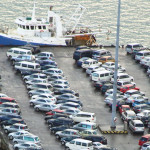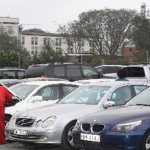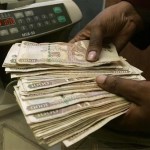Importers of second-hand cars are losing millions of shillings to fraudsters who have invaded the Japanese vehicle export market.
“This embassy has recently been inundated by requests for intervention from many Kenyans. Hundreds of them might have fallen into this trap according to available records,” said Paul Ndung’u, the deputy head of Kenya’s Mission in Japan.
The embassy posted a warning on its Web site last week after meeting the representatives of the 30 victims who have come forward and who have backed their claims with documentation.
“If this trend continues, our next posting may include details of the frequently reported culprits in the Japanese market,”.
The criminals are said to be using computer graphics to create Internet advertisements that display their banners over pictures of stolen vehicles or those photographed from other dealers’ yards and at auctions. Data from the Japan Used Motor Vehicle Exporters Association (JUMVEA) puts the average cost for a second hand saloon car at $10,000 (Sh850,000). This means that 30 victims who have sought the embassy’s assistance may have lost Sh25.5 million to the fraudsters.
Kenyans have exhibited a huge appetite for second-hand vehicles, helped by a rule introduced five years ago allowing them to import cars so long as they are not more than eight years old since assemble. Increased incomes have also fuelled demand, with the average salary for workers now put at Sh50,000.
The demand for convenience that comes with cheaper high-performing cars caused in part by the chaotic public transport sector has made Kenyans an easy prey for Internet fraudsters, embassy officials said. “Kenya is clearly among the lucrative and most-targeted markets for unscrupulous Internet- based motor vehicle fraudsters,” Mr Ndung’u said, adding that even senior government officials had lost money to the cartel
Data prepared by the Kenya National Bureau of Statistics indicates that a total of 155,852 vehicles were registered between January to December 2011. Out of this, only 12,185 were sold by local new vehicles dealers according to Kenya Motor Industry Association (KMI) records. This means 92.2 per cent were imported into the country.
Close to 80 per cent of all classes of used cars imported into Kenya comes from Japan, according to data from the Japan Export Vehicles Inspection Centre Company Ltd (JEVIC) which ranks Kenya as the sixth largest destination globally for used passenger vehicles from Japan.
This includes vans used for passenger services where 27,779 units were shipped in from Japan last year, making Kenya the second single largest destination in Africa after South Africa which ordered 45,425 units.
The red flag from embassy officials comes hot on the heels of an alert from the Kenya Auto Bazaar Association (KABA) circulated to its members last week over the emerging car theft racket in Japan.
“Tracking down this cartel has proved very expensive. Many importers give up the chase as the cost of procuring legal services in Japan is most of the time higher than the value of the vehicle,” KABA secretary-general Charles Munyori said on Thursday.
According to embassy officials, importers who opt to pursue the phoney firms face a legal dilemma. The Japanese legal system classifies defrauding a client in a private business deal as a civil offence for which local police cannot arrest or prosecute, Kenyan embassy officials said.
Mr Ndung’u said silence by victims and lack of publicity on the pitfalls of e-trading has played into the hands of fraudsters.
“They are assured of another opportunity to defraud one victim after another without the fear of detection”, he said.
The conmen change their telephone numbers and Web sites immediately they sense danger.
The bank accounts to which Kenyan victims have wired their money, the mission’s investigations found, are opened using fake names and identities for a particular period of time to accomplish the fraud.
“You cannot easily track down these master criminals because Japanese banks can accommodate ATM withdrawals of up to 1,000,000 Yen or more than Sh1,000,000”, Mr Ndung’u said in the statement.
The criminals are believed to have found their way into the Japanese motor vehicle industry as a result of the global economic difficulties and cut-throat competition that have translated into low profitability at home.
The dash for market openings outside Japan, is being undermined by sale of stolen vehicles, illegally rebuilt units or even re-modeled vehicles. This tendency, Kenya’s embassy officials said, thrives on the reputation for quality, reasonable price and honesty associated with dealers in Japan.










